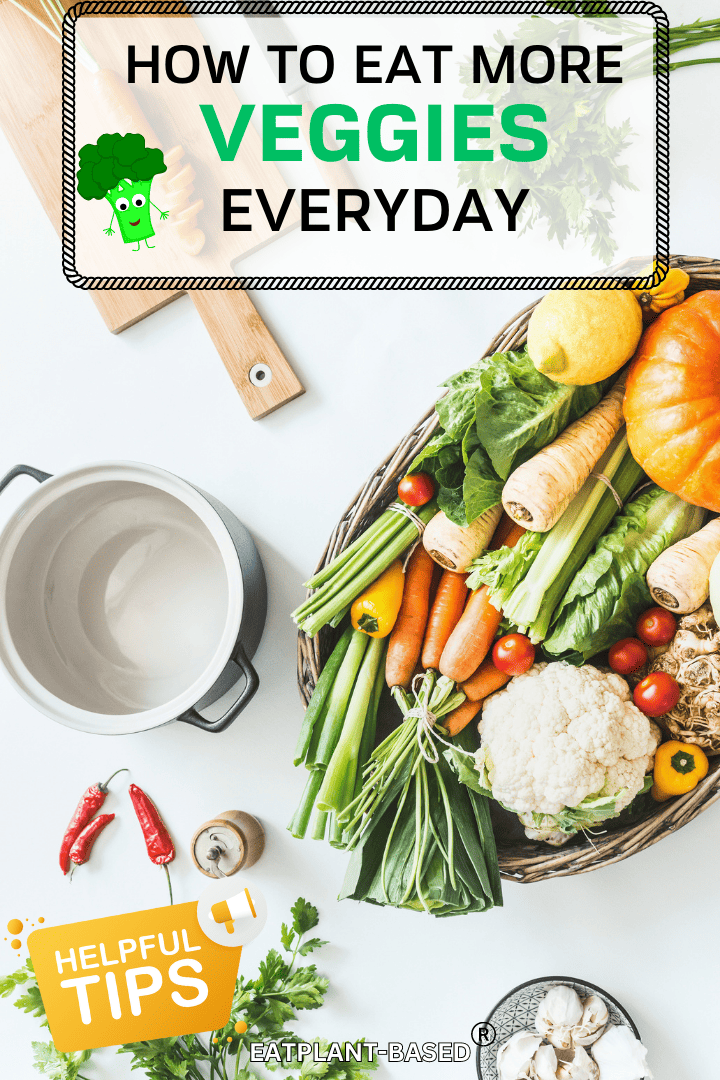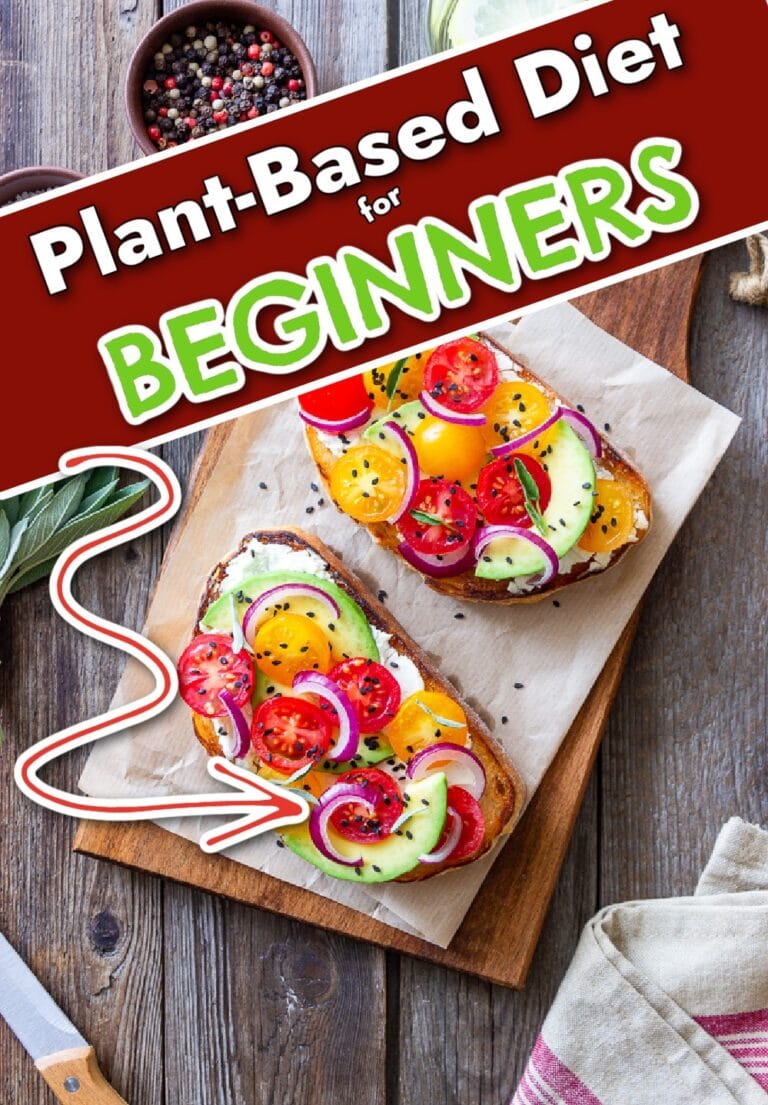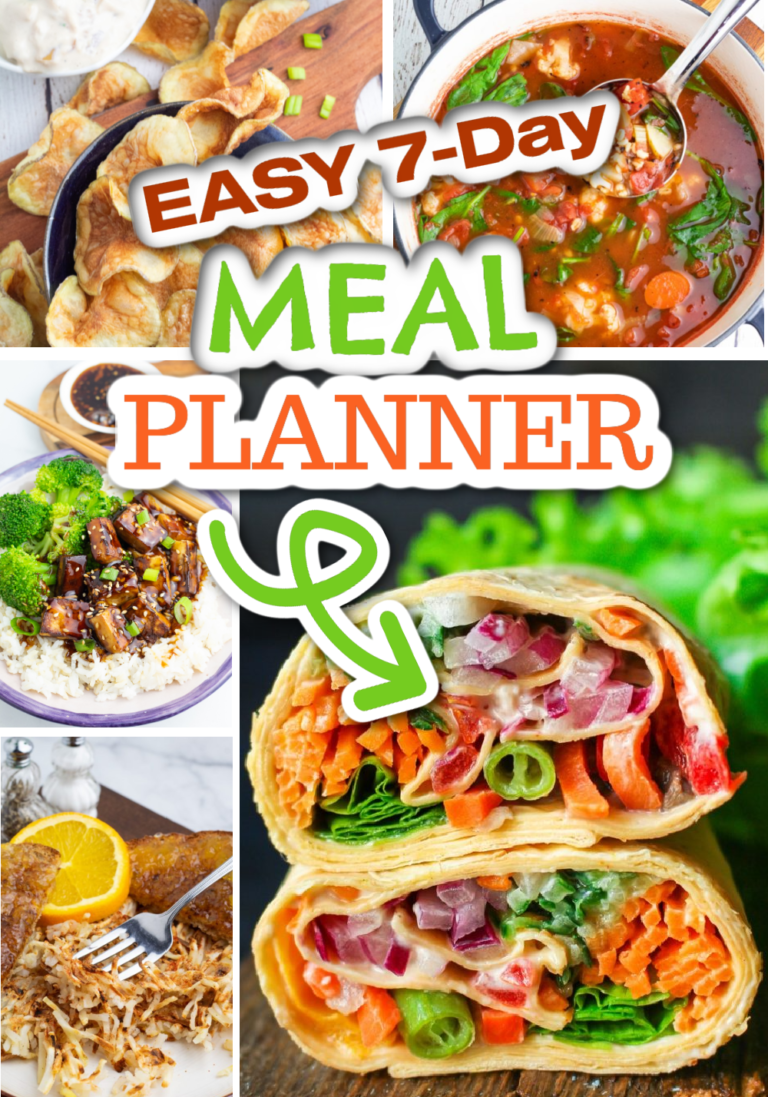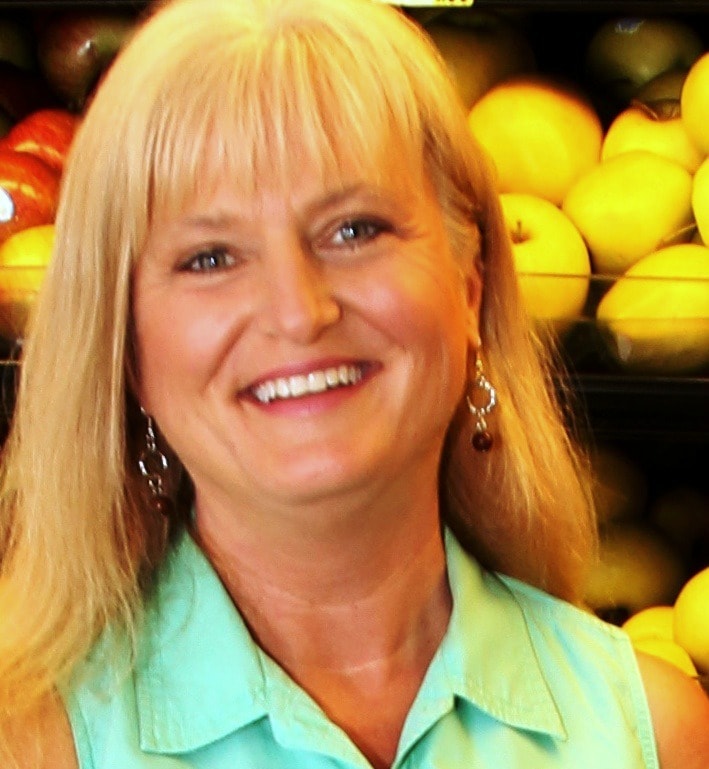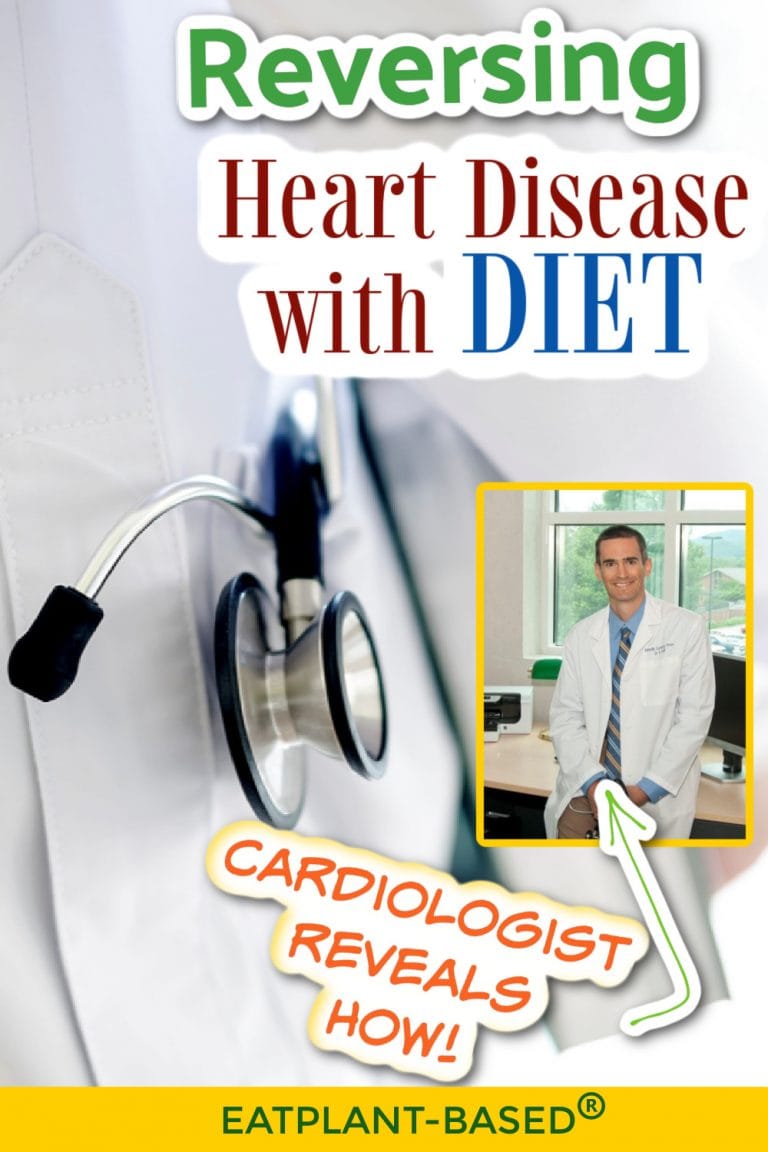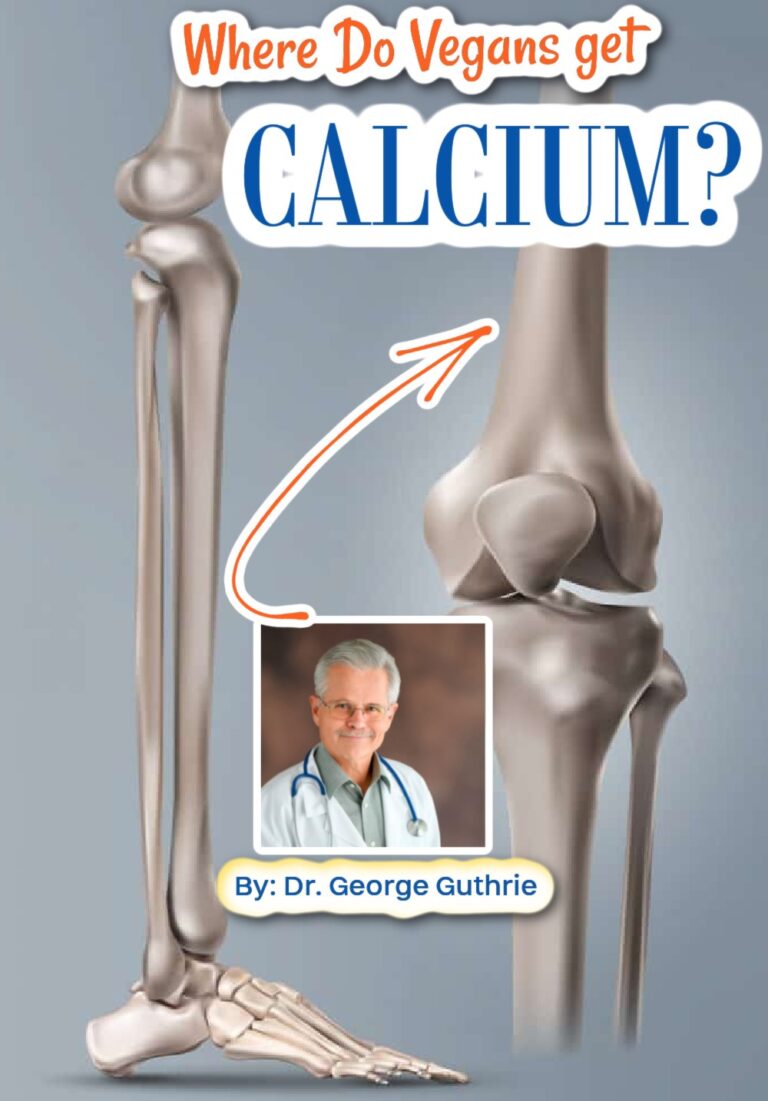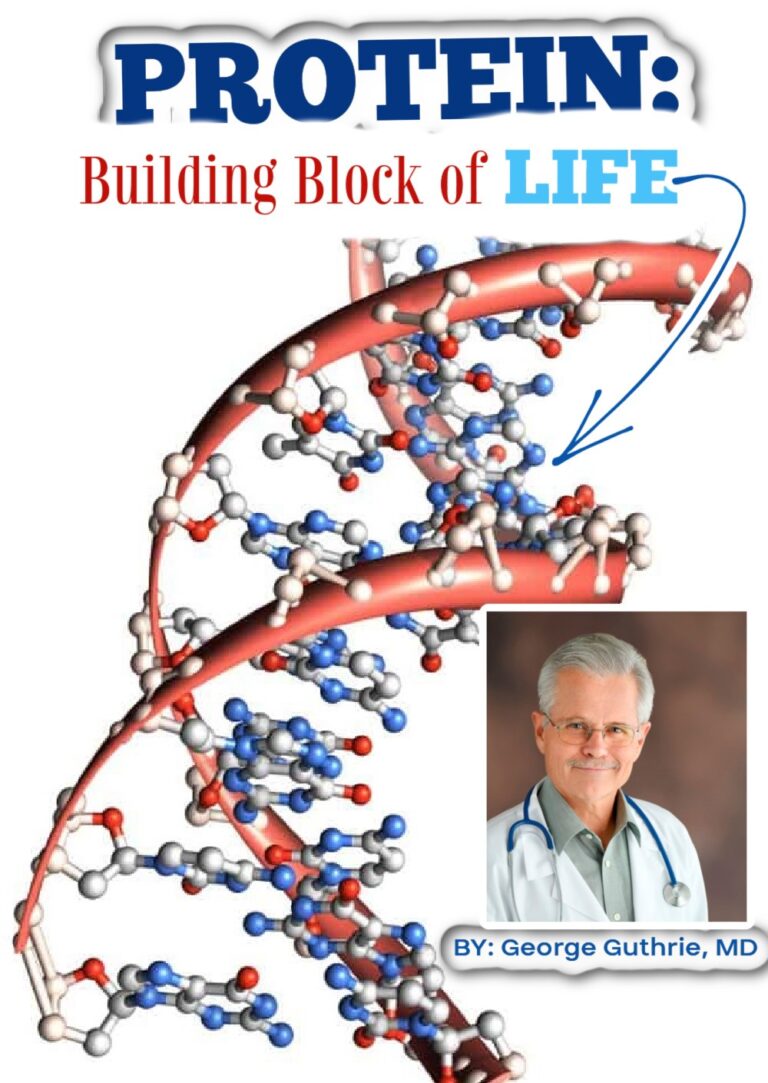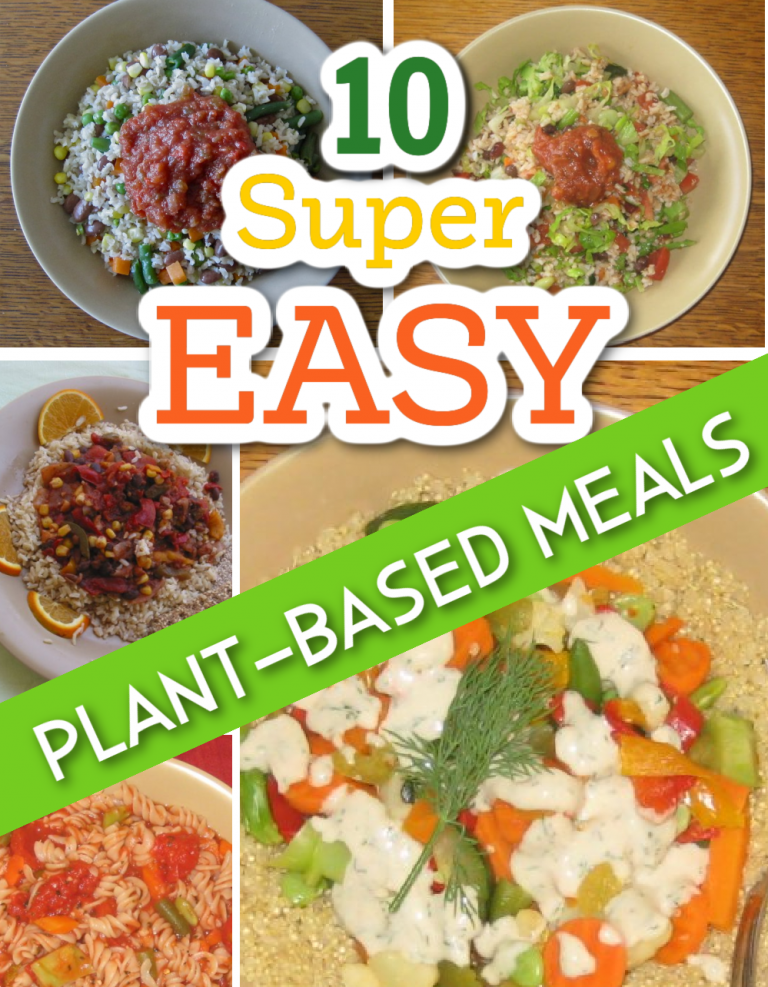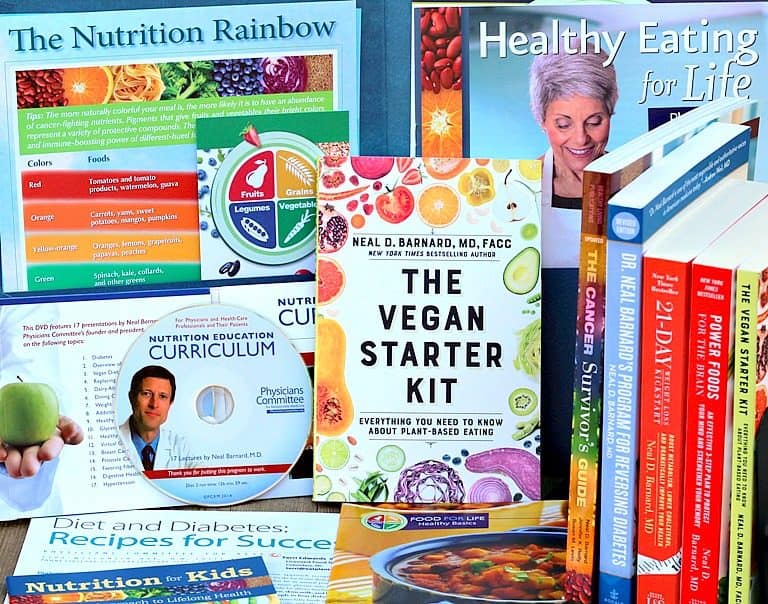What Is a Plant-Based Diet? Benefits and Foods to Eat
A plant-based diet focuses on consuming mostly or exclusively plant-derived foods, such as fruits, vegetables, whole grains, legumes, nuts, and seeds. This way of eating offers numerous health benefits, including improved heart health, weight management, and a reduced risk of chronic diseases. In this article, you’ll learn what a plant-based diet is, its advantages, and the best foods to include in your daily meals.
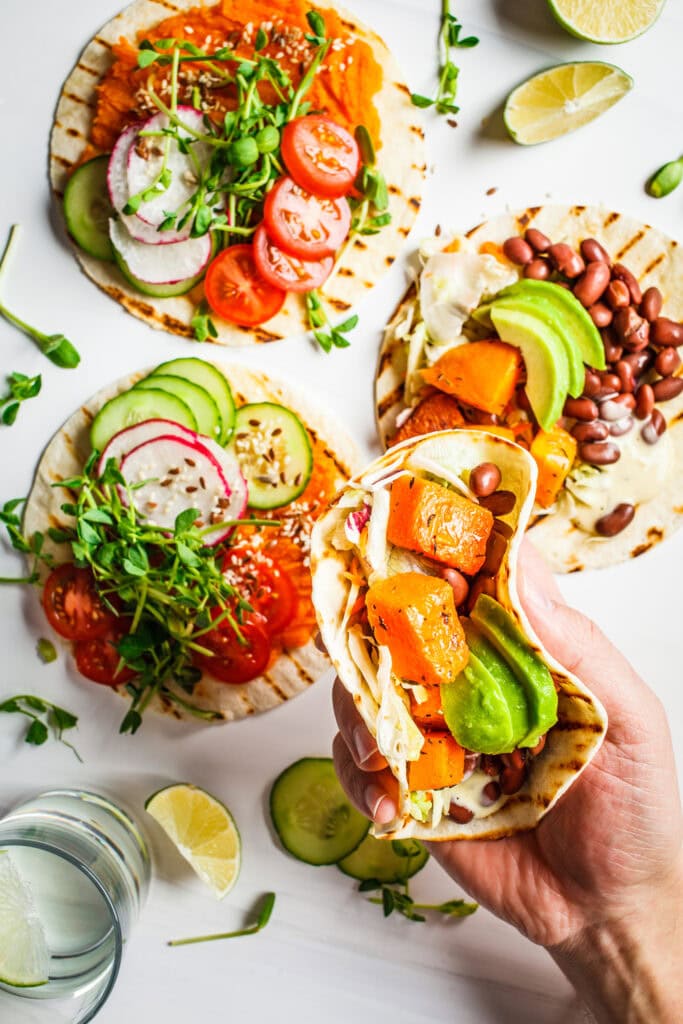
The popularity of plant-based diets is on the rise as more people discover their potential health benefits, such as weight management, improved heart health, and reduced risk of chronic diseases. This article will answer all your questions about what a plant-based diet is, the benefits of eating more plants, and how to incorporate more plant-based foods into your daily meals.
We have created a great resource for anyone searching for information on a whole food plant-based diet (WFPB). It includes free downloads and resources: fact sheets on different health subjects from the Physicians Committee for Responsible Medicine, TEDx talk from Dr. Caldwell Esselstyn, M.D. on heart disease and diet, and TEDx talk from Dr. Neal Barnard, M.D. on preventing and reversing type 2 diabetes. A great resource to share.
What is a plant-based diet?
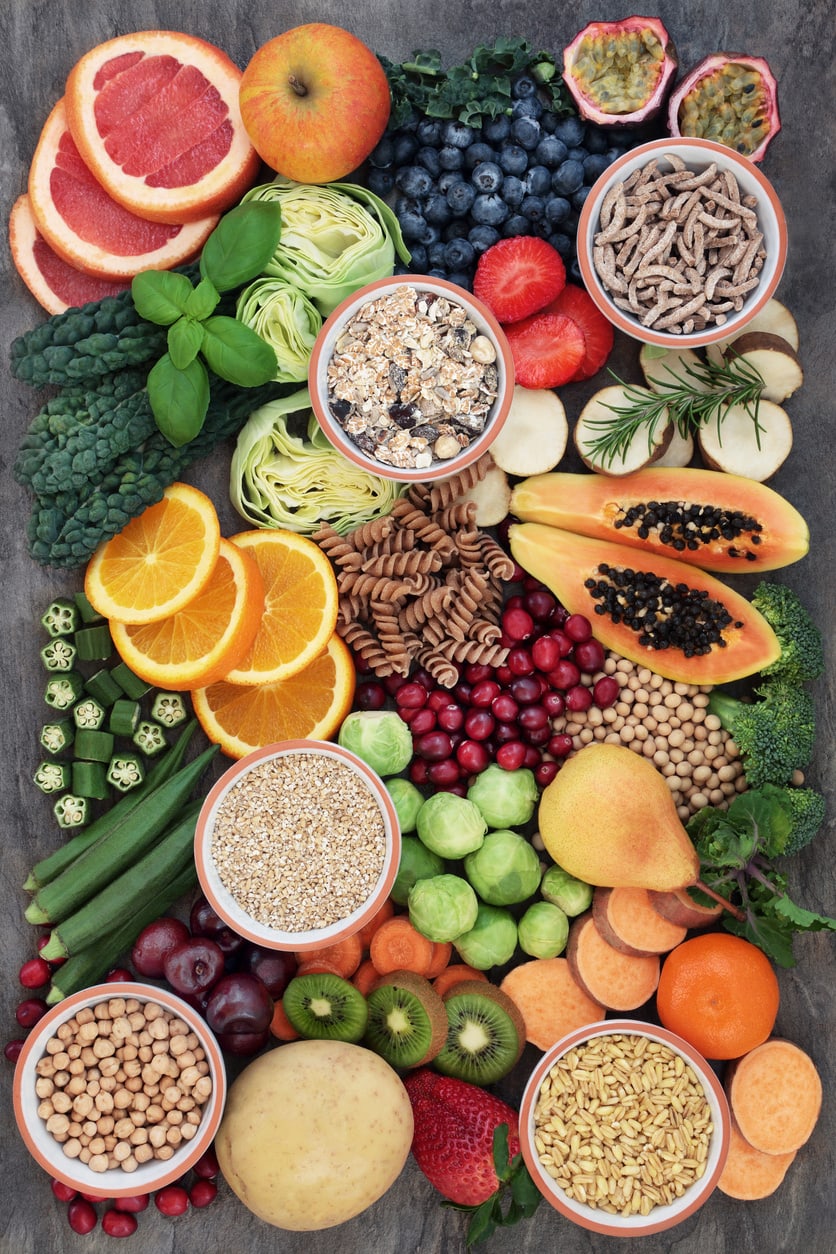
With a plant-based diet, you can enjoy a wide variety of delicious and nutritious foods that will please your palate and promote good health.
A whole-food plant-based (WFPB) diet is similar to a vegan diet in that both ways of eating avoid meat, dairy, and eggs. However, WFPB takes it to a further level of eating closer to the plant.
Fresh fruits, vibrant vegetables, whole grains, legumes, nuts, and seeds offer a wealth of flavors and textures to explore. From hearty bean soups like our vegan Mexican tortilla soup and crisp salads like this spinach fruit salad to savory quinoa dishes like my quinoa chickpea salad and sweet dairy-free fruit smoothies, there’s no shortage of tasty and satisfying options. Embracing a plant-based diet opens up a world of wholesome, plant-powered foods that can be both exciting and nourishing!
Whole food plant-based food list
The term whole in whole food plant-based describes foods that are minimally processed. This includes whole grains, fruits, vegetables, and legumes, and it also includes, in moderation nuts, seeds, avocados, natural sweeteners, and certain soy or wheat products that don’t contain added fat such as tofu and tempeh.
Eating a diet rich in plant-based, whole foods means nourishing your body with foods from the following groups. Our plant-based diet food list is a great resource that includes a grocery list.
- WHOLE GRAINS – This category encompasses brown rice, millet, oats, barley, corn, bulgur, and all products made from whole grains, such as bread, cereals, and pasta. Whole grains are not only satisfying but also low in fat. In regions where whole grains are dietary staples, like rural Asia, there are notably lower rates of diabetes, heart disease, and certain cancers compared to the United States and Europe.
- LEGUMES – This group includes beans, peas, and lentils. They are hearty, high-protein foods that are rich in calcium, iron, cholesterol-lowering soluble fiber, and even traces of omega-3 fatty acids.
- VEGETABLES – These foods are packed with vitamins and minerals, extremely low in fat, and, like all plant-based foods, contain no cholesterol whatsoever.
- FRUIT – These are vitamin-rich and have no cholesterol. They do have natural sugar but are low on the glycemic index, except for watermelon and pineapple.
Recommended foods do not include meat, dairy products, eggs, added oils, or most processed foods.
This also means avoiding heavily processed foods that contain added sugars or artificial sweeteners. Also to be avoided are highly refined grains such as white bread that have been stripped of most nutritional value.
Oil–even olive oil–is also avoided due to being highly processed and basically liquid fat which is about 13% artery-clogging saturated fat.
Ways to get started with a plant-based diet
Begin with Familiar Foods: Start by incorporating more plant-based versions of foods you already enjoy. Swap out meat and dairy for plant-based alternatives like easy bean tacos instead of traditional tacos or these vegan black bean burgers instead of ground beef burgers.
Gradually Increase Plant-Based Meals: Transition by gradually adding more plant-based meals into your diet each week. Aim for one or two plant-based meals a day and slowly build up as you discover new recipes and options.
Explore Plant-Based Recipes: Dive into plant-centric cooking by trying new plant-based recipes that highlight vegetables, fruits, grains, and legumes. Experiment with dishes like hearty soups, salads, and grain bowls to make the switch both enjoyable and satisfying.
10 Easy Ways to Add More Vegetables Every Day
- Add vegetables to recipes– Do you love spaghetti? Try adding red bell peppers and mushrooms to your recipe. I love to toss a couple of handfuls of fresh baby spinach leaves into marinara sauce as well. Do this with pizza and pasta dishes too.
- Put vegetables in your sandwiches & wraps- When you’re making a sandwich, why not make it a veggie and hummus sandwich or even an avocado tomato sandwich that is loaded with fiber and antioxidants? If you are in the mood for a wrap, try a fresh veggie wrap piled high with lettuce, spinach, tomatoes, and cucumbers.
- Replace meat- Instead of a regular burger, opt for a fiber-rich bean burger and top it with fresh greens, tomatoes, onions, and pickles. For dinner, try a bean chili instead of traditional chili. If it is meatballs you’re hungry for, experiment with vegan meatballs for that spaghetti or hoagie.
- Use veggies as toppings- Roasted vegetables like bell peppers, mushrooms, and onions make delicious toppings for pasta dishes and even baked potatoes. You could add them to pizza or even crusty bread or toast.
- Soups & stews- Soups are a great way to get more vegetables in because many of them already lend themselves so well to fresh ingredients. Try vegetable soup, creamy potato soup, or even white bean soup.
- Eat pizza- Everybody loves pizza, and it is a great way to add lots of veggies like onion, bell pepper, mushrooms, olives, spinach, artichoke hearts, and any other vegetables you can think of. We even add broccoli to ours.
- Eat stir fries- Asian food is a great way to get in more veggies, especially stir-fries. Toss in carrots, baby corn, broccoli, cabbage, peas, and so much more for a delicious full meal. We have some amazing vegan sauces to add full flavor to those vegetables.
- Make veggie bowls- If you’re tired of salads, try making a beautifully colorful veggie bowl! They are endlessly customizable, so there is a bowl for everyone no matter what your taste preference is. Start with a grain like rice or quinoa, then start piling on veggies, beans, greens, and yummy sauces. Your veggies might be cauliflower, sweet potatoes, asparagus, radishes, pea pods, carrots, bean sprouts, shredded cabbage, peppers, or tomato. You get the picture.
- Make smoothies- If you’re making a fruit smoothie, try adding a handful of fresh baby spinach leaves or even frozen peas. You’ll be surprised that you can’t even taste them! If you’re hesitant about including vegetables in your smoothies, experiment by combining them with fruits such as bananas or frozen mango. The inherent sweetness of fruits can effectively conceal the taste of vegetables, making it easier to incorporate them into your smoothie creations.
- Snack on veggies- Raw vegetables offer a convenient and satisfying crunch, making them an excellent choice for on-the-go snacking while also helping us meet our daily vegetable requirements. If you enjoy raw vegetables as they are, that’s fantastic! However, if you prefer some added flavor, consider pairing them with a dip like our vegan ranch dip for a more enjoyable snacking experience.
5 Plant-Based Diet Facts
- There is plenty of protein in plants and a WFPB diet meets the RDA. The Recommended Daily Allowance (RDA) for protein was established in the early 1940s and has been officially sanctioned ever since. For more information read How Much Protein is Too Much?
- Plants have lots of calcium. Fracture rates are highest in countries that consume the most dairy and calcium. Countries that consume little or no milk, dairy or calcium supplements have 50% to 70% lower fracture rates. For more on calcium read How to Increase Bone Density Naturally.
- Plants are not fat-free. The body requires a certain amount of fat to function properly, and plants provide all that is needed.
- Eating a whole food plant-based diet is affordable. Read Plant-Based Diet on a Budget.
- A plant-based diet is far from depriving. There are so many foods to eat including healthy nachos, lasagna, chili, soups, stews, and even desserts. Check out some fabulous recipes in our Recipe Index.
Benefits of going plant-based
Switching to a plant-based diet can lead to numerous health benefits, including improved heart health, enhanced digestion, and a lower risk of chronic diseases like diabetes and cancer. A plant-strong diet can also help with weight management and boost overall energy levels.
By incorporating more nutrient-dense plant foods into your diet, you support better overall well-being and vitality.
Recipe inspiration for plant-based eating
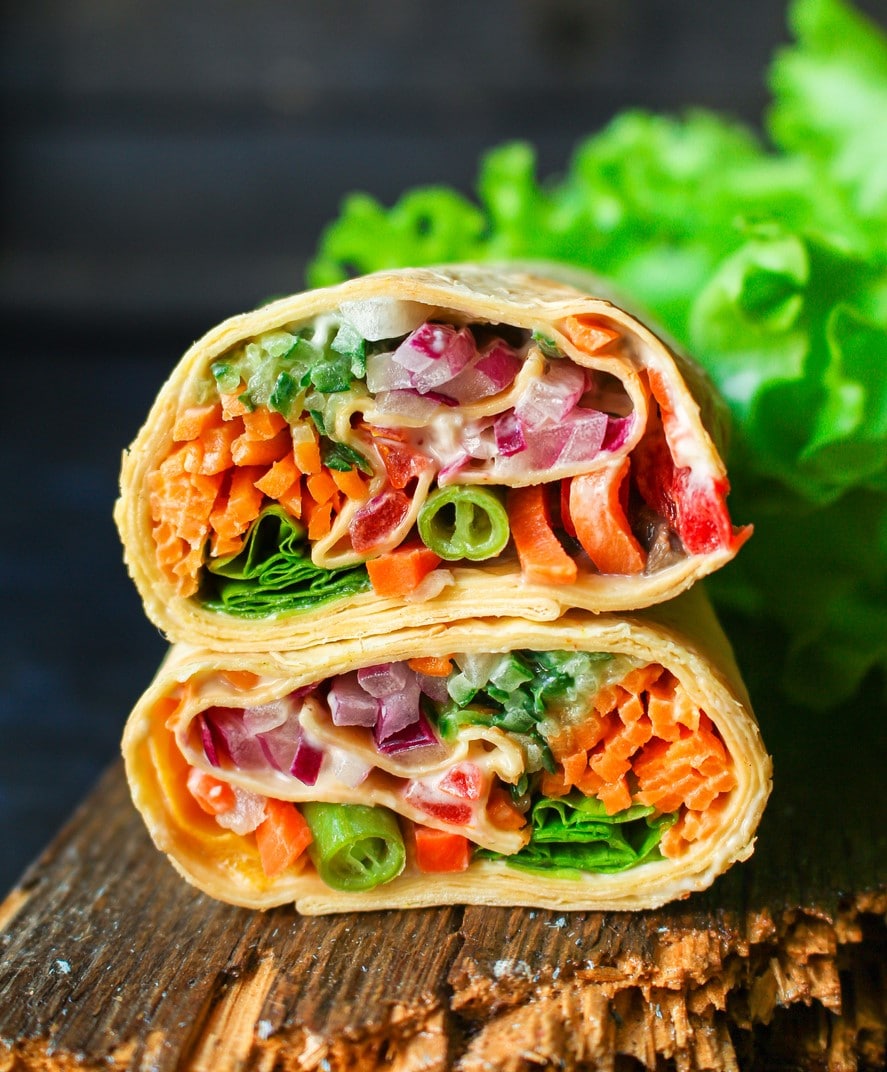
As you continue with a plant-based diet, it will gradually become second nature. Here are some ideas to help you get started.
Breakfast:
- Hearty tofu breakfast scramble with toast
- Smoked tempeh bacon with a bowl of healthy butter-free grits
- Steel-cut breakfast bowl with fresh fruit
Lunch:
- Healthy veggie wraps
- Chickpea avocado salad on a sandwich or lettuce leaf
- Veggie poke bowl
Dinner:
- Grilled veggie kabobs with a bowl of steamed brown rice
- Vegan pasta primavera with a garden salad
- Lentil sloppy joes with a baked potato
Dessert:
The Bottom Line
Adopting a plant-based diet offers a range of benefits, including improved cardiovascular health, enhanced digestion, and a reduced risk of chronic diseases such as diabetes and cancer. By focusing on nutrient-dense, plant-derived foods, you can enjoy a more balanced and healthful diet. We hope that this information empowers you to make positive changes and embrace the advantages of a plant-based lifestyle.
We highly suggest watching the documentary Forks Over Knives from Netflix or Amazon to understand scientific research and studies supporting this way of eating, as well as checking out these other recommended resources.
FREE Health Fact Sheets are available from the Physicians Committee for Responsible Medicine in PDF form to download and print.
Kaiser Permanente supports plant-based nutrition
In 2017, Kaiser Permanente, the largest healthcare organization, came out in support of whole food plant-based nutrition with their Healthy Living: Eat Healthy Live Better program.
“As I see skyrocketing incidences of conditions such as diabetes, hypertension, and heart disease, I am profoundly aware that there is so much potential for preventing or even reversing most of these problems through very inexpensive lifestyle changes centered on proper nutrition.” — Carmelo Mejia, MD, Internal Medicine, Kaiser Permanente
For those of you new to the whole food plant-based lifestyle, we’ve created a FREE 7-Day Plant-Based Menu Planner to help you get started!
Our plant-based starter kits are a great way to begin this new healthy lifestyle because they include a book, a set of DVD lectures from Dr. Neal Barnard, and a folder full of helpful literature from the Physicians Committee for Responsible Medicine.
About Terri Edwards
Hi guys! I am the content creator behind EatPlant-Based and a licensed Food for Life instructor with the Physicians Committee for Responsible Medicine. I am passionate about sharing healthy recipes and tips to empower others to get healthy. I’m so glad you’re here! Read More…


